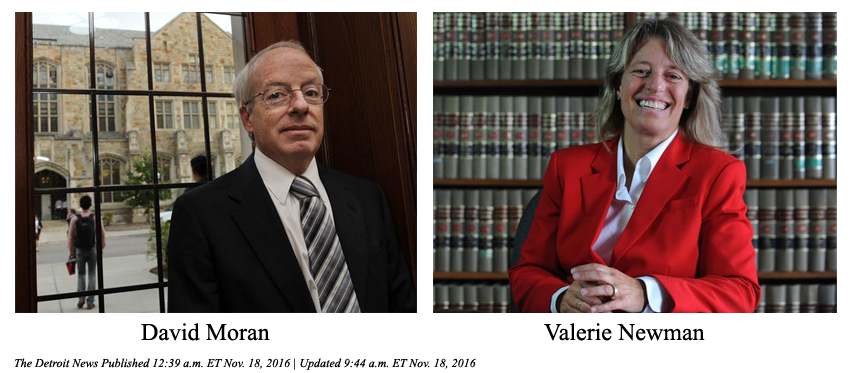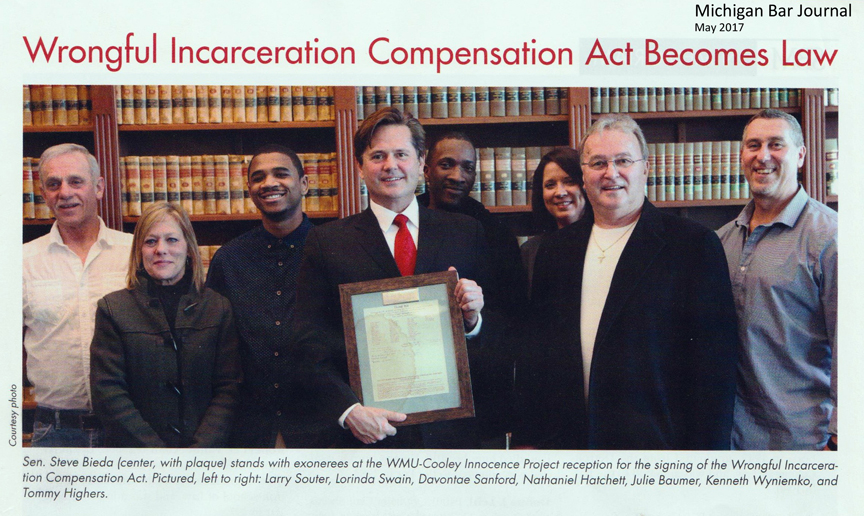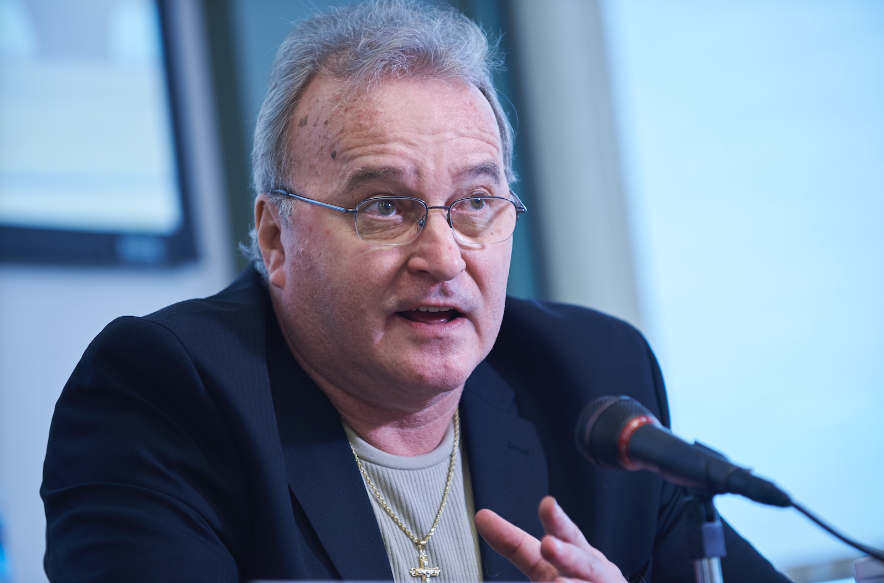_________________________________________________________________________________________________________________________
Ken Wyniemko — Never Giving Up, Never Giving In
_________________________________________________________________________________________________________________________
____________________________________________________________________________________________________________
Michigan awards it's first two Wrongfully Convicted cases
____________________________________________________________________________________________________________
This story is about the first individuals who received compensation in Michigan for wrongful convictions.
_________________________________________________________________________________________________________________________
U-M Innocence Clinic attorneys Val Newman and David Moran voted 2016 Michiganians of the Year
_________________________________________________________________________________________________________________________

In a year marked by a caustic and bruising election, they remind us of the American ideals we can all agree on — just when we need it.
One is a jurist who’s devoted his life to dispensing justice, while two others harnessed law students to fight for the exoneration of the wrongfully imprisoned.
They join a long list of distinguished individuals that The Detroit News has honored each year since 1978.
Thanks to the efforts of two attorneys, Davontae Sanford was released from prison in June after serving nearly nine years for murders he says he didn’t commit.
Sanford was 14 in September 2007 when four people were killed on Detroit’s east side. He says he was tricked into confessing, and was coerced by an unscrupulous lawyer into pleading guilty to second-degree murder. Two weeks after he went to prison, hit man Vincent Smothers confessed to 12 murders, including the four for which Sanford was convicted.
Valerie Newman, an attorney with the State Appellate Defender Office, fought for years to exonerate Sanford. In 2015, the case was picked up by the University of Michigan Innocence Clinic, a student-run group headed by law professor David Moran.
In June, prosecutors dropped the charges against Sanford, and he walked out of prison with Newman at his side. “My lawyers have supported me through everything,” Sanford told The Detroit News after his release. “Like Val (Newman); I don’t look at her as my mother. I look at her as my second mother.”
Moran said the Sanford case was the most complex the Innocence Clinic has dealt with since its inception in 2009. “This is the most compelling case you’ll ever see, because it shows how the system can totally fail a young boy,” Moran said. “So many things went wrong at so many levels, and so many actors were involved, that it’s really an indictment on the entire criminal justice system in Wayne County. There’s plenty of blame to go around.”
After Sanford’s release, Newman said: “One of the really tremendous failures of the system was his defense attorney (Robert Slameka, whose law license is suspended for ethical violations). “There was not one pretrial motion that was brought,” Newman said. “Davontae’s confession had all the hallmarks of a false confession; (it was) never challenged.”
Sanford said his attorneys went above and beyond to help exonerate him. “It wasn’t like a lawyer-client relationship, it was like family … they really care about the people they deal with,” he said. “It’s not something they do to make a living.”
Read full article here
The Detroit News' Michiganians of the Year
Valerie Newman
Age: 53
Education: Bachelor’s degree, University of Michigan; Juris Doctorate, Wayne State University Law School
Family: Wife, Jennifer Litomisky
Why honored: For her vigilance in fighting to exonerate Davontae Sanford
David Moran
Age: 53
Education: Bachelor’s degree, University of Michigan; master’s degree, Cambridge University, England; master’s degree, Cornell University; Juris Doctorate, University of Michigan Law School
Family: Married to Kris Olsson; two daughters — Annika and Ingrid
Why honored: For leading the University of Michigan Innocence Clinic’s efforts to exonerate Davontae Sanford
_________________________________________________________________________________________________________________________
Wrongful Incarceration Compensation Act Becomes Law
_________________________________________________________________________________________________________________________

After more than a decade of work by legislators and legal advocates, Governor Rick Snyder signed the Wrongful incarceration Compensation Act into law on February 14, giving those convicted and imprisoned for crimes they did not commit the right to financial compensation and reentry services.
"Innocent people should not be penalized for mistakes in the justice system," Senator Steven Bieda, the bill's sponsor, said in a statement after the measure passed. "This legislation at least helps them pick up the pieces of their lives."
Bieda joined wrongly convicted individuals and their advocates in Lansing for a ceremonial signing of the bill and a reception hosted by the WMU-Cooley Law School's Innocence Project in Lansing.
The law, which took effect March 29, allows those wrongly convicted and imprisoned of crimes to receive $50,000 for each year of incarceration. Compensation is not automatic; claimants must file a petition for compensation in the Court of Claims. Exonerees are also eligible for housing for up to one year following the date of discharge and the same reentry services parolees receive.
"Both the reentry services and the compensation award will help our clients get back on their feet," said WMU-Cooley Innocence Project Director Marla Mitchell-Cichon. "No amount of money can make them whole, but it's a start."

